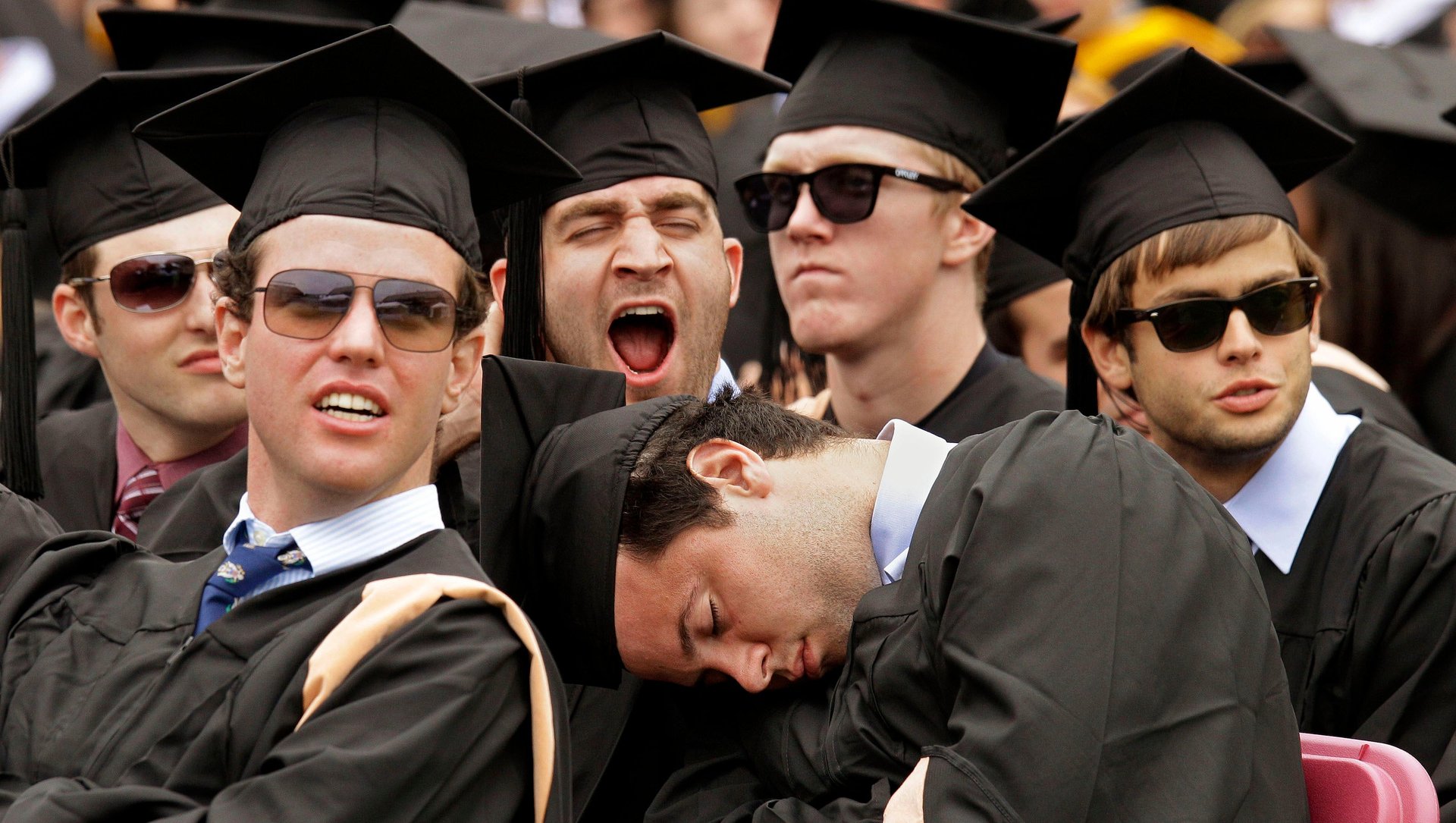University presidents are shocked—shocked!—that Americans think they’re too elite
There are many accusations lobbed at US colleges, often with justification: Their methods are often inefficient, their curriculums too distant from the real world, their tuition rates maddeningly high.


There are many accusations lobbed at US colleges, often with justification: Their methods are often inefficient, their curriculums too distant from the real world, their tuition rates maddeningly high.
Yet one criticism that most of the country’s schools have actually embraced over the decades, even openly coveted, is that they’re too elite. Almost every university used to dream of having the selective, nose-turned-up air of Harvard or Yale. Schools in the mid- to top-tier range intentionally presented themselves as exclusive and upmarket, knowing that students and families would be attracted to prestige.
Not so, anymore. In the wake of Donald Trump’s election, US universities—the most selective of which tend to educate very liberal, very wealthy students—are facing backlash like never before for their policies and practices. A report in Politico today highlighted some of the tensions that university presidents are feeling, with Rice University president David Leebron putting the problem thusly:
If you go back 15 years, I think universities were held—not where the military is, but pretty much just below that. Now, we’ve fallen a lot. I think it’s a very challenging time where we can’t just go out in the world and say, ‘We’re an esteemed institution’ and people will credit what we’re saying.
It’s perhaps not unexpected that Trump-supporting, elite-bashing conservatives are accusing top-ranked schools of being too expensive, rich, and biased. But now even Democrats, who overall have positive opinions of universities, are increasingly skeptical.
When you consider that tuition bills at private colleges can easily be upward of $40,000 a year, and then notice that college presidents are making half a million dollars in that same time, it’s not difficult to see why the issue has managed to bring together both sides of the political aisle. Add in the fact that college degrees are increasingly necessary for jobs, and you have the potential for a powder keg.
“We’ve long enjoyed a ‘Send us the money and leave us alone’ kind of phenomenon,” Margaret Spellings, the US education secretary under president George W. Bush and current president of the University of North Carolina system, admitted to Politico. And Yale president Peter Salovey said to the publication there is “a narrative of colleges and universities as out of touch and not politically diverse” and that, on schools’ end, “it’s not enough anymore to just say ‘trust us.'”
To their credit, elite schools are striving to change their culture—recruiting more minority students, holding discussions about free speech, frowning down upon historically exclusive social clubs. And to address runaway tuition, some schools are experimenting with cheaper, alternative teaching methods; others, like Brown University, are doing away with loans and trying to find other ways of lowering costs for students and families. But problems of perception—as anyone who’s followed Trump’s presidency knows—are much harder to fix than ones of policy.